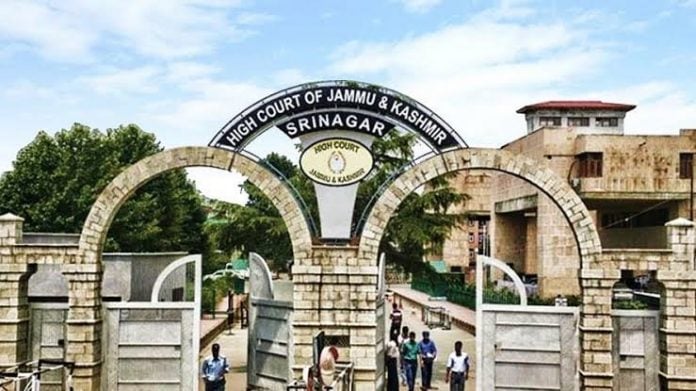The Jammu and Kashmir High Court has directed health professionals in the Union Territories of Jammu and Kashmir, and Ladakh to desist from the two-finger test on rape survivors. In the order issued on Thursday, the Court also asked courts in the two UTs to avoid revealing the identity of survivors in proceedings and judgments.
The division bench of Acting Chief Justice Rajesh Bindal and Justice Sanjay Dhar was hearing an appeal filed against a judgment passed by the Principal Sessions, Judge, Bhaderwah whereby the accused/respondent was acquitted of the charge of rape.
According to the AAG Aseem Sawhney, the trial court had disbelieved the statement of the prosecutrix on technicalities and for flimsy reasons. Keeping in view the contentions raised by the AAG, the Court found that a prima facie case for grant of leave to file an appeal was made out. Therefore, the application was allowed and the appeal against the judgment was granted.
During the course of the hearing, the Court noted that as per the trial court records, the prosecutrix had been subjected to “two finger test”.
The Court said, “Section 228A of IPC prohibits disclosure of the identity of the victim of certain offences, which includes offence under Section 376 IPC. In pari materia to the aforesaid provision is Section 228A of the J&K Ranbir Penal Code, which was applicable to the case at hand at the relevant time.”
“Rape is not merely a physical assault but it is the destruction of the personality of the victim. Therefore, Courts have to act responsibly and with sensitivity while dealing with the cases of rape, particularly, while referring to the prosecutrix, ” the Court observed.
The Court placed reliance on Supreme Court judgment in a case of Lillu and others v. the State of Haryana wherein the top court had held that “two-finger test” is unconstitutional as it violates the right to privacy of the rape survivors and was an affront to the physical and mental integrity and dignity.
“We direct that all the courts in the Union Territories of Jammu & Kashmir, and Ladakh to avoid disclosing the identity of rape survivors in their proceedings and judgments. A further direction is issued to all the health professionals of Union Territory of Jammu & Kashmir, and Union Territory of Ladakh to strictly desist from undertaking “two-finger test” known as “per-vaginum examination” on the rape survivors,” the Court said.
On December 13, 2014, the prosecutrix went missing and in this regard, a complaint was lodged with the police by her maternal grandfather. During the investigation, it was found that the prosecutrix had been kidnapped and taken away by the respondent in a car. Accordingly, an FIR No.196/2014 for offences under Section 366 RPC was registered and the investigation was set into motion. On December 15, 2014, the prosecutrix was recovered from the custody of the accused.
The statement of the prosecutrix under Section 164-A Cr PC was recorded. After investigation, it was found that prosecutrix, after being kidnapped, was raped by the respondent and accordingly, a charge-sheet for offences under Sections 363 & 376 of RPC was laid before the trial court.
The trial court, however, acquitted the accused holding that the offence against could not be proved.
Read Also: Qutub Minar illegal construction: Delhi HC slams civic body, police for apathy


